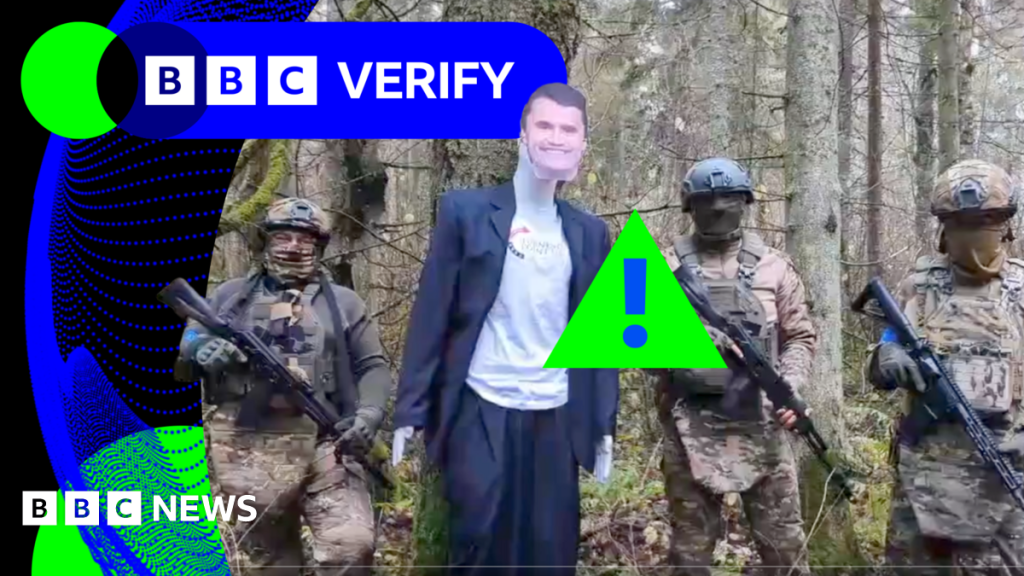Listen to the article
Fact-checking Trump’s Claim About Killings of Christians in Nigeria
Former US President Donald Trump has directed the military to prepare for potential action in Nigeria, citing what he describes as an “existential threat” to Christians in the West African nation. Trump made the announcement on his Truth Social platform, claiming that “thousands of Christians are being killed” and accusing the Nigerian government of failing to protect religious minorities.
In his post, Trump specifically alleged that 3,100 Christians were killed in Nigeria last year alone, compared to a total of 4,476 Christian deaths worldwide. These figures appear to originate from advocacy group Open Doors, though the organization has not responded to requests to explain their methodology or data sources.
The claims about targeted killings of Christians in Nigeria have gained traction in recent weeks, including a similar assertion by US comedian Bill Maher, who stated that over 100,000 Christians have been systematically killed in Nigeria since 2009.
However, experts question the reliability of these figures. Nnamdi Obasi from the International Crisis Group notes that “any figures of the numbers of Christians or Muslims killed are questionable, as such claims are not based on any credible databases of fatalities, disaggregated by religious identity.”
Data from the Armed Conflict Location & Event Data Project (ACLED), a respected US-based monitoring organization that tracks violence globally, presents a significantly different picture. Using a methodology that collates multiple official reports and media sources, ACLED documented only 29 deaths in Nigeria last year where the Christian identity of victims was explicitly reported as a factor in the violence targeting them.
By comparison, ACLED recorded 34 deaths from targeted attacks against Muslims in Nigeria during the same period, suggesting that violence affects multiple religious communities in the country.
The overall death toll from various attacks across Nigeria in 2023 reached 4,393, according to ACLED. Dr. Ladd Serwat, senior Africa analyst with the organization, notes that while some of these victims may have been Christians, their religious identity was not always clear or a relevant factor in the violence.
Nigeria, Africa’s most populous nation with over 200 million people, has long struggled with various security challenges. The country faces multiple armed conflicts, including the Boko Haram insurgency in the northeast, banditry in the northwest, and farmer-herder conflicts in the central regions.
The religious dynamic in Nigeria is complex. The country is roughly divided between a predominantly Muslim north and a largely Christian south, though many regions have mixed populations. While some conflicts do have religious dimensions, security experts generally attribute violence to a combination of factors including competition for resources, criminal activity, weak governance, and ethnic tensions, rather than religion alone.
The Nigerian government has consistently denied that Christians face systematic persecution, arguing that violence affects citizens of all faiths. Security agencies have been battling insurgent groups for over a decade, with limited success in some regions.
International observers, including the United States Commission on International Religious Freedom, have expressed concern about religious violence in Nigeria but have not validated claims of genocide or systematic targeting at the scale suggested by Trump.
Trump’s directive for military preparation marks a significant potential shift in US policy toward Nigeria, a key regional ally and Africa’s largest economy. The Nigerian government has yet to officially respond to Trump’s statements or the prospect of potential US military intervention.
Fact Checker
Verify the accuracy of this article using The Disinformation Commission analysis and real-time sources.




7 Comments
This is a complex and concerning situation. The article highlights the difficulties in discerning truth from fiction, especially when state actors are allegedly involved in disinformation campaigns. Maintaining a measured, fact-based approach is essential.
The claims about large-scale killings of Christians in Nigeria are certainly alarming, if true. However, the article rightly points out that the figures cited seem questionable and lack clear methodology. More rigorous analysis is needed to understand the true scale and nature of the violence.
I agree, the reliability of the statistics is a key issue that needs to be addressed. Careful investigation is required to separate fact from fiction, especially on such a charged and politically-sensitive topic.
This story highlights the complex challenges of combating disinformation, especially when it comes from state actors. Rigorous fact-checking and transparency around data sources are essential to cut through the noise and get to the truth of the matter.
This is a concerning report about alleged Russian disinformation tactics. It’s important to carefully verify claims about targeted killings and get accurate data from reliable sources before drawing conclusions. Fact-checking and transparency are crucial in these sensitive geopolitical issues.
While the allegations of Russian trolls creating fake threats are concerning, the article rightly cautions about the need for verifying the claims made. Jumping to conclusions without solid evidence risks fueling further polarization and mistrust.
Absolutely, maintaining impartiality and objectivity is crucial when dealing with such sensitive geopolitical issues. Jumping to conclusions without robust data could end up undermining efforts to address the real problems.